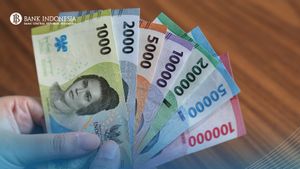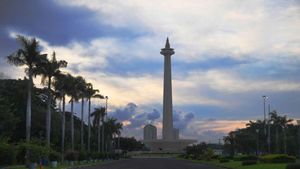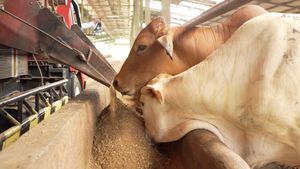YOGYAKARTA Eating excessive food during breaking the fast is one thing to avoid. The reason is, excessive eating at open time also has the potential to interfere with the health of the body to interfere with the smooth fasting of Ramadan in the future.
For Muslims who fast, excessive eating is very often experienced during breaking time. The trigger varies, one of which is because at that time the condition of the stomach was empty plus the desire to immediately want to quench thirst and hunger is peaking.
What is often not noticed is the knowledge of the negative impacts that arise after a person eats excessively when the time opens. So what are the impacts?
When forcing yourself to eat a lot at open time, you have the potential to feel weak afterward. This anxiety occurs when the body absorbs too much carbohydrates obtained through the iftar menu.
Carbohydrates can indeed be a source of energy, but if they are obtained in large quantities, they will increase blood sugar levels and decrease the body's natural insulin. As a result, you will feel weak and tired.
It is highly recommended not to overeat when breaking the fast so as not to get sleepy. This drowsiness will interfere with other worship series, namely Maghrib Prayers, Isha Prayers, and Tarawih Prayers. This drowsiness is caused by the large number of carbohydrates that the body absorbs.
Have you ever had a stomach stoppage after breaking the fast? It could be that the condition was caused by excessive food consumption. When forcing too much to eat, the stomach will fill up to expand like a hot air balloon. It has the potential to cause the stomach to stop.
It is very likely that you will feel nauseous and vomit when eating excess food suddenly when your stomach is empty. This condition occurs when the stomach is not ready to be filled with too much food, especially foods that contain too many carbohydrates.
Disorders caused by excessive eating can make it difficult for a person to concentrate. This condition will make it difficult for some people who need concentration after breaking the fast, such as driving or doing other hard work.
Despite fasting, some people actually experience weight gain. This happens because of the habit of eating excessively when breaking the fast and supported by unhealthy food and lifestyle.
Eating takjil too much also has the potential to trigger digestive problems. When the stomach is not ready to accept food intake suddenly, the performance of the stomach will get heavier, triggering digestive health problems such as stomach pain.
GERD or gastroesophageal reflectux disease is digestive disorder. This condition occurs when stomach acid or bile erodes the food channel layer and makes the walls irritated.
GERD can recur when a person eats too much iftar food. The effect can be pain in the heart so that a hot sensation or burning in the chest to the neck appears.
This condition can be triggered by eating unhealthy foods when breaking the fast such as fried foods, sweet tea ice, junkfood, and many more. When cholesterol in the body increases, it will have the potential to trigger other diseases.
In general, eating excessively either during breaking the fast, sahur, or in normal conditions will have the potential to interfere with brain function. Excessive eating causes obesity to affect brain function. As a result, memory and memory will be disrupted.
In addition to the dangers of eating excessively when breaking the fast, visit VOI.ID for other interesting information.
The English, Chinese, Japanese, Arabic, and French versions are automatically generated by the AI. So there may still be inaccuracies in translating, please always see Indonesian as our main language. (system supported by DigitalSiber.id)













